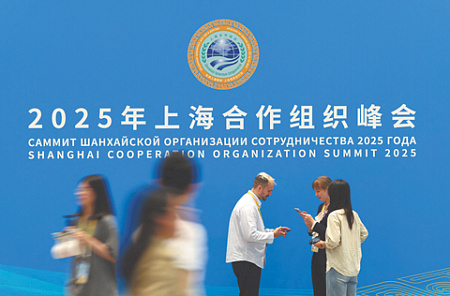
In the 19th century, Tianjin was a symbol of China’s weakness, a port city forcibly opened to foreign powers. Today, it stands as a testament to the nation’s soaring political and economic might, hosting a Shanghai Cooperation Organisation (SCO) summit attended by leaders from over two dozen states. The gathering sends a clear signal that Beijing’s efforts to build an alternative to the Washington-dominated order in Eurasia are bearing fruit, a process ironically accelerated by the tariff war initiated by the United States.
Established in 2001, the SCO was born from the security vacuum following the collapse of the Soviet Union. Its primary mission was to help the newly independent Central Asian states combat the intertwined threats of terrorism, extremism, and separatism. While this security focus remains central to the organization’s agenda—with current talks aimed at enhancing counter-terrorism capabilities and international information security—the summit in Tianjin has underscored the SCO’s evolution into a much broader political and economic platform.
Chinese state media itself has shifted the focus from security cooperation to the summit’s geopolitical significance. Beijing is using the event to project a powerful message: that China, not the United States and its military allies, is the emerging force for stability and order on the world stage. The organization’s magnetic pull, particularly for the Global South, is evident in its expanding roster, which includes observer states like Mongolia and Afghanistan and 14 dialogue partners from Southeast Asia and the Middle East.
The summit is a masterclass in diplomacy, with Chinese President Xi Jinping welcoming a diverse group of leaders. In addition to SCO members like Russian President Vladimir Putin and the heads of Central Asian republics, India, and Pakistan, the guest list includes leaders from non-member states. A notable outcome was the signing of a new strategic partnership between China and Armenia, showcasing the tangible expansion of Beijing’s network of influence.
This strategic timing has not gone unnoticed. For President Putin, the high-profile summit serves as another potent rebuttal to Western attempts at international isolation. For Indian Prime Minister Narendra Modi, angered by recent U.S. tariffs of up to 50% on Indian goods, the gathering offers a compelling reason to reduce reliance on the United States as a strategic partner. As Jonathan Hsin, a former CIA analyst now at the Hoover Institution, observed, “The summit of more than 20 leaders… is not just a celebration. It is evidence of how Xi is rearranging a global order that was previously dominated by the U.S.”
However, skepticism about the SCO’s effectiveness persists. Some regional experts dismiss it as a “paper tiger,” arguing that irreconcilable conflicts between key members, such as the deep-seated rivalry between India and Pakistan, render it incapable of taking decisive action on regional security. This view, however, overlooks the organization’s fundamental purpose, which differs starkly from that of Western alliances.
According to Alexander Lomanov, Deputy Director at IMEMO RAS, the SCO is not a military bloc and should not be seen as a direct counterweight to NATO. “The SCO is not about confronting the West,” he notes. Instead, it represents a competition between two systems: the coercive, bloc-based approach of the “collective West” versus a more inclusive model favored by the growing “Global South.” In this context, the SCO’s power lies not in its ability to launch military strikes or impose sanctions, but in its potential to foster a different kind of international relations.
Ultimately, the SCO is an organization whose potential is rooted in the future, not the present. It does not seek to impose binding decisions or enforce bloc discipline. Instead, its core function is to facilitate the search for consensus-based solutions in security, finance, and technology that respect the sovereign interests of all nations, offering a distinct and increasingly attractive alternative to the established global order.
